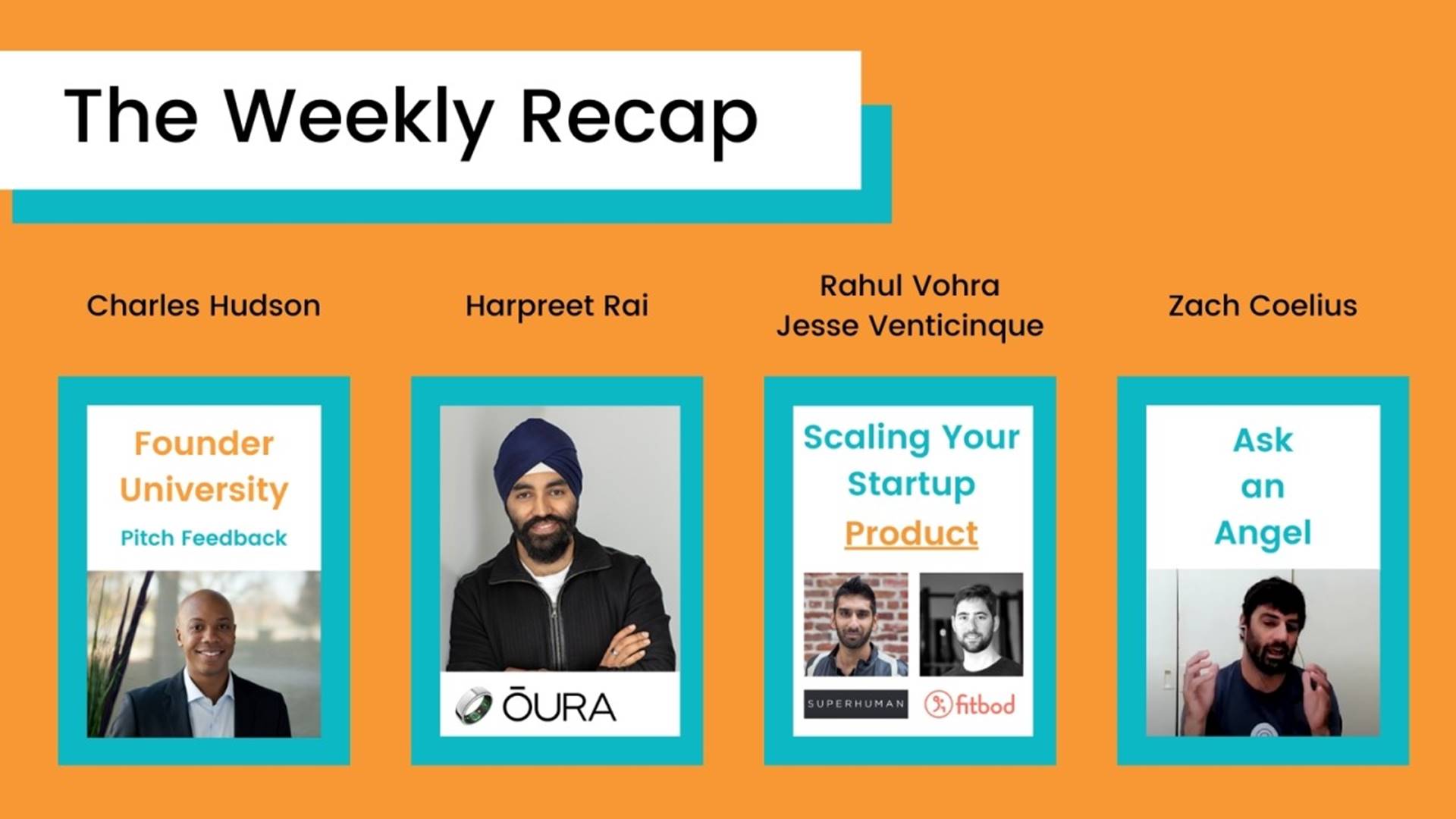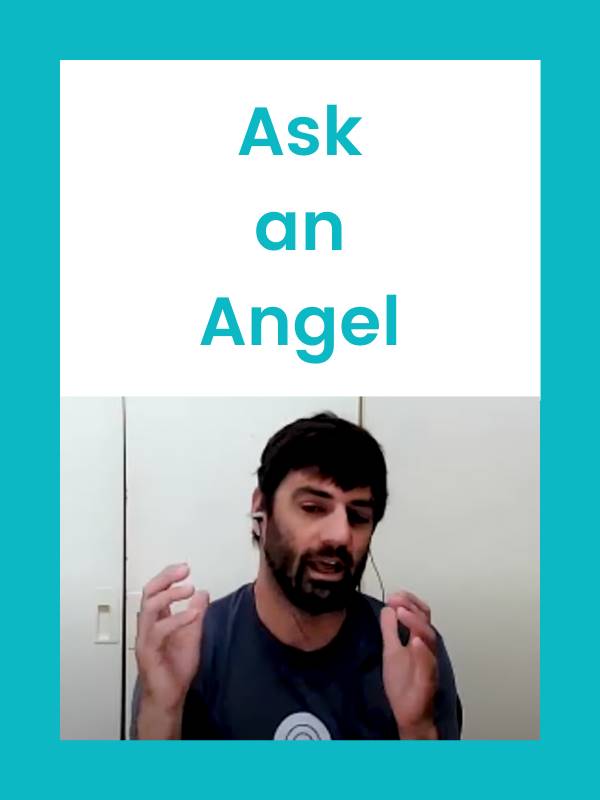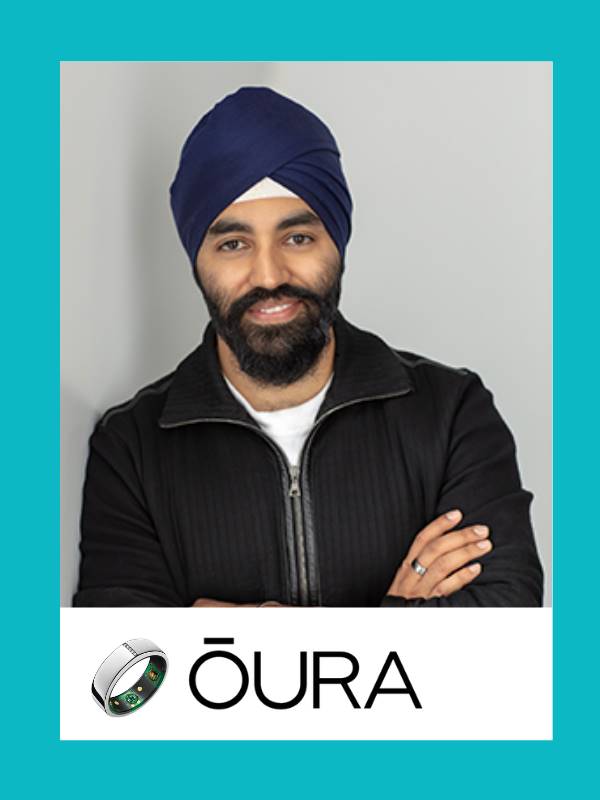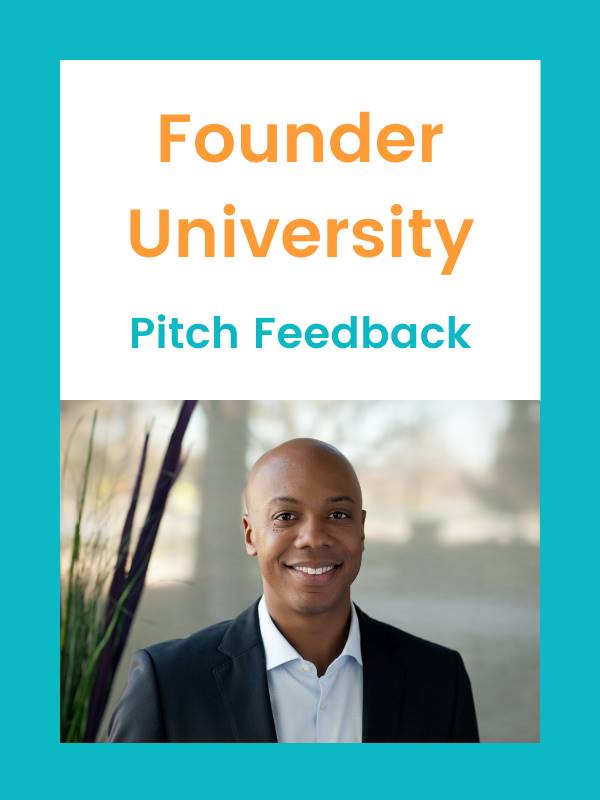The focus was a recurring theme across all episodes this week. Strong company foundations are built on singular excellence

Mature companies may branch out and offer suites of products and services, but that opportunity was created by originally having a focused, differentiated way to satisfy customers.
- E1215: Ask an Angel PLUS Antonio Garcia Martinez vs. Apple with Zach Coelius
- E1214: Product | Scaling Your Startup S2 E5 with Superhuman’s Rahul Vohra & Fitbod’s Jesse Venticique
- E1213: Oura CEO Harpreet Rai on improving sleep, NBA partnerships, hardware & more PLUS the Instagram Kids debacle
- E1212: Precursor Ventures’ Charles Hudson & Jason give candid feedback on startup pitches at Founder University
To dig into the full episodes: click on the picture watch the episode video, click on the titles to go to the Podcast Notes.
Product | Scaling Your Startup S2 E5: Superhuman’s Rahul Vohra & Fitbod’s Jesse Venticique | E1214
E1215: Ask an Angel – Zach Coelius

Zach joined Jason for an hour of live listener questions across LinkedIn, YouTube, and Twitter, some top insights were:
For founders: Create a product that provides incredible value to your customers. This is the foundation for future success.
Even if progress seems slow, it’s more important to work on the hardest problems (like getting your next two paying customers) than going out and winning pitch competitions or credentials like Forbes 30 under 30.
For Angel investors: Balance diversification (getting a wide exposure to good companies) with concentrating your capital on the best companies. Doing this requires making follow-on investments (where you invest more capital in a company’s later financing round).
Example: If you have $100K to invest in startups (money you can lose!), start out with 25, $2K bets. Assuming 5 investments meet your follow-on criteria, put $10K in each for follow-on. This way you have put 60% of your money into the 5 best companies. (5 x $2K, 5 x $10K.
Cook vs. Zuckerberg: Apple and Facebook go to war over privacy
E1214: Product Secrets

Reaching product-market fit eludes most companies, but it is essential to building an enduring business. Two founders with top-notch products shared what they’ve learned so far.
Rahul Vohra is the Founder & CEO of Superhuman, “the world’s fastest email experience.”
Jesse Venticinque is the Co-Founder & Product Head for Fitbod, a personal trainer app that delivers custom workouts for every user.
Oura CEO Harpreet Rai on improving sleep, hardware, & more | E1213
Top Tips for Making Great Products
- Keep your product simple on top. Complexity should sit beneath your product hook (the core valuable interaction a user has with the product).
- Don’t just follow generic wisdom. Your strategies should match your product. Many articles suggest reducing friction in onboarding, but both of these companies did the opposite to achieve better long-term results (lower churn and happy users). Fitbod added steps to their onboard flow to make sure they can deliver a customized exercise experience on the first try. Superhuman onboards every customer in a 1-to-1 session, to teach every user the shortcuts needed to be a product pro.
- It’s the leader’s job to simplify what success is. Have core pillars and repeat them constantly so your employees know how to make product decisions.
- Using game design principles can make your product intrinsically motivating for your customers to use.
E1213: Harpreet Rai, CEO of Ōura

Ōura is the most accurate wearable for sleep & recovery. They have chosen to focus on this opportunity because, “99.9% of Americans will try to sleep tonight, but only 10% will exercise per day.” Sleep impacts everything from your risk of disease and cognitive function to the hormones that regulate your appetite. For more on Ōura’s functionality, listen to the full episode.
As a successful hardware CEO, Harpreet shared lessons for aspiring hardware founders:
Technology Businesses aren’t the same, Hardware ≠ Software: Most hardware companies try to raise a lot of money early, which sets investor expectations too high. It’s better to test and iterate. Hardware development timelines are longer than software, inevitable delays will derail over-capitalized startups.
Hardware differentiated through software adds durability: Commoditization of hardware components and technologies leaves makers of hardware vulnerable to copy-cats. At Ōura, a large portion of the hardware’s value is created by the algorithms that analyze the data they collect to draw conclusions about the wearer’s health.
Utilizing expanding data sets improves the capability of the hardware. Another manufacturer could duplicate a Tesla part for part, but without the self-driving software, it would be worth thousands of dollars less.
Subscribe to the TWiST Weekly Recap
E1212: Improve Your Startup Pitch

Charles Hudson of Precursor Ventures joined Jason to give 8 companies feedback on their short 2 min pitches. The most memorable, actionable advice was:
Pitch decks: Founders should lead with their startup’s strongest element (team, product, traction). Doing so gets the investor’s attention and frames the subsequent slides in a positive light.
A pitch has to be crisp. Give rich memorable examples and be clear on who you help, what you charge, how many customers you have, & why your customers use your solution.
Company Strategy: Most startups try to solve too many problems at once. Focus.
“The number one thing I end up talking to founders about is, how can we do fewer things, but do them faster and better.” – Charles Hudson
Thank you for reading! Please comment on what your favorite episode was from this week so we can make it more like it.
Startupdeals.tech is a curated list of the most generous software discounts for startup founders by @jason, @launch & @twistartups
Napomena o autorskim pravima: Dozvoljeno preuzimanje sadržaja isključivo uz navođenje linka prema stranici našeg portala sa koje je sadržaj preuzet. Stavovi izraženi u ovom tekstu autorovi su i ne odražavaju nužno uredničku politiku The Balkantimes Press.
Copyright Notice: It is allowed to download the content only by providing a link to the page of our portal from which the content was downloaded. The views expressed in this text are those of the authors and do not necessarily reflect the editorial policies of The Balkantimes Press.
